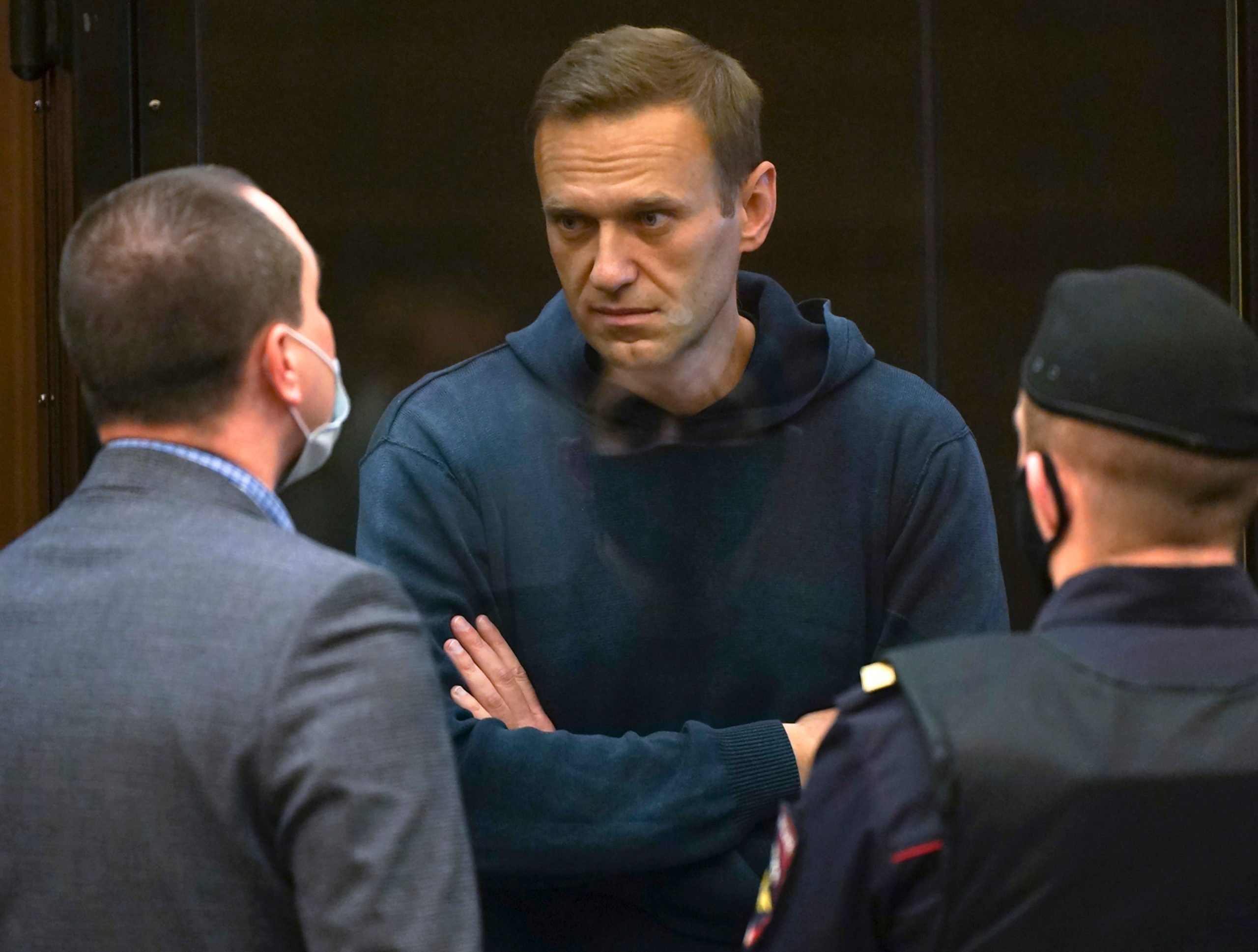Imprisoned Russian opposition leader Alexei Navalny is facing a lengthy prison term on top of the one he is already serving in a trial Kremlin critics see as an attempt to keep President Vladimir Putin’s most ardent foe in prison for as long as possible.
A court is expected to announce a verdict on Tuesday. Navalny, who is serving 2 1/2 years in a penal colony east of Moscow, has been charged with fraud and contempt of court. The prosecution accuses him of embezzling money that he and his foundation raised over the years and of insulting a judge during a previous trial. Navalny has rejected the allegations as politically motivated.
Also Read: Mass protests called across Russia to ‘save Navalny’s life’
The prosecution has asked for 13 years in a maximum security prison for the anti-corruption crusader and a 1.2 million-ruble (roughly $10,700) fine. It wasn’t immediately clear if Navalny is expected to serve this sentence concurrently with his current one or on top of it. The judge started reading out the verdict on Tuesday morning.
The trial, which opened about a month ago, unfolded in a makeshift courtroom in the prison colony hours away from Moscow where Navalny is serving a sentence for parole violations. Navalny’s supporters have criticized the authorities’ decision to move the proceedings there from a courthouse in Moscow, saying it has effectively limited access to the proceedings for the media and supporters.
Also read: Why are petrol, diesel, LPG prices rising again
Navalny, 45, has appeared at hearings wearing prison garb and made several elaborate speeches during the trial, decrying the charges against him as bogus.
Navalny was arrested in January 2021 immediately upon his return from Germany, where he spent five months convalescing from a poisoning he blamed on the Kremlin, a claim Russian officials vehemently denied. Shortly after the arrest, a court sentenced him to 2 1/2 years in prison over the parole violations stemming from a 2014 suspended sentence in a fraud case that Navalny insists was politically driven.
Also read: Unacceptable: Japan PM on Russia’s call to drop WWII peace treaty talks
Following Navalny’s imprisonment, authorities unleashed a sweeping crackdown on his associates and supporters. His closest allies have left Russia after facing multiple criminal charges, and his Foundation for Fighting Corruption and a network of nearly 40 regional offices were outlawed as extremist — a designation that exposes people involved to prosecution.
Last month, Russian officials added Navalny and a number of his associates to a state registry of extremists and terrorists.
Several criminal cases have been launched against Navalny individually, leading his associates to suggest the Kremlin intends to keep him behind bars for as long as possible.







